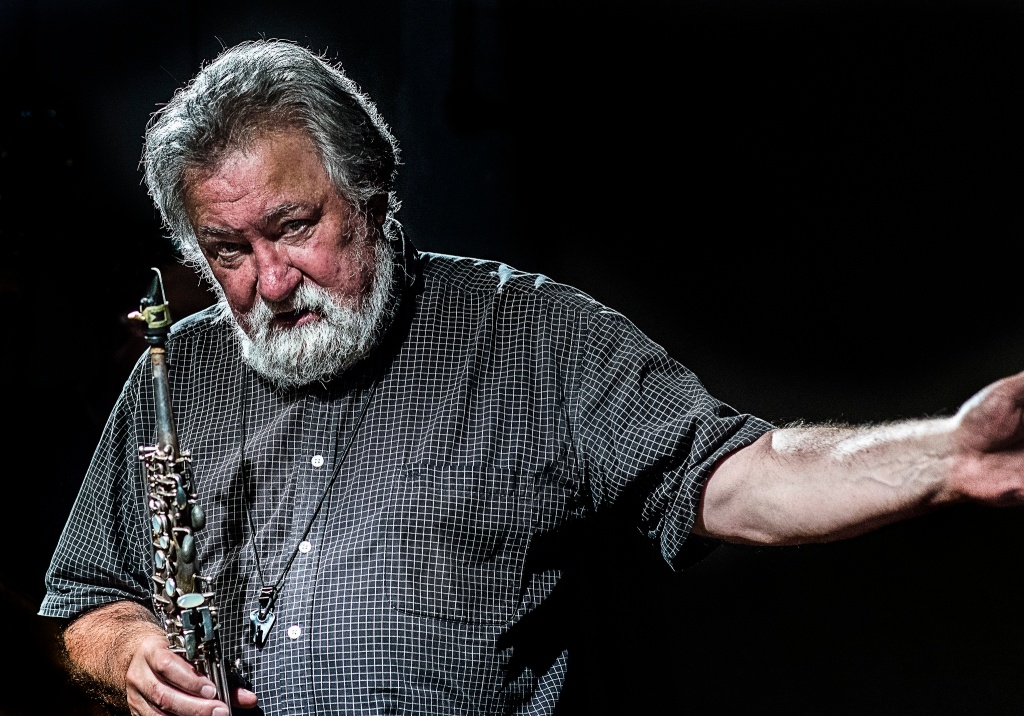Listening to the music on the latest discovery of two sets by Tubby Hayes found in Ron Mathewson’s tape collection brings back strong memories of listening to Tubby in London in the early 60s. It was interesting to hear Evan Parker talking, in the short interview he gave at the beginning of last week’s concert celebrating his 80th birthday, of his time at the University of Birmingham where he spent the two years ostensibly studying Botany, but in fact playing and running jazz gigs. Similarly, I spent the first year of my university life at the School of Oriental and African Studies (SOAS), part of London University, listening to jazz at Ronnie Scott’s – at that time in Gerrard Street, Soho – and running two concerts in SOAS. After that year I decided to concentrate on my studies, whereas Evan went on to become a world famous musician.
At that time Ronnie Scott’s was mostly programming British musicians, and on many Saturday nights there would be a double bill of the Tubby Hayes Quintet and the Ronnie Scott Quartet, the latter often featuring Stan Tracey on the piano. It was the time when the club was just beginning to be able to bring in American soloists, and I remember hearing Al Cohn with a British rhythm section, and later Zoot Sims, also with a British rhythm section. I did, however, get to hear Tubby quite often, and really got to know his playing. So when I started promoting – in the unlikely setting of the SOAS Main Hall – I booked Tubby’s quintet with Jimmy Deuchar on trumpet, Freddy Logan on bass, Ronnie Stephenson, on drums and possibly Gordon Beck on piano. I don’t remember whether it was Gordon or Mike Pyne, but many years later Gordon assured me that it was him!
Listening to this latest discovery recorded in 1972 of Tubby Hayes’ music brings strong memories and also some reflections on how the music has changed since then. The thing that is immediately apparent is the regular pattern of a set in those days; there are two sets on the double Cd and each set follows the pattern of those days, starting with two medium to fast up tempo numbers, followed by a slower number, usually a ballad, and concluding with another medium to fast up tempo number. In fact, we only hear an extract of the final numbers as Ron Mathewson’s tape clearly ran out! Each number in the set also falls into the pattern of statement of the tune followed by solos all round up to the closing re-statement of the tune. If this sounds critical of the format, it is only a mild criticism as the actual playing within it by all members of the quartet is excellent. Mike Pyne’s piano solos really stand out for their swing and elegance, Ron Mathewson plays very interesting lines on the bass, Tony Levin, although rather distant in the mix, adds punchy interactions with the soloists’ lines, and Tubby himself reveals a more reflective and melodic approach to his solos as compared to his rapid fire playing of the 1960s . Two tracks feature Tubby on flute, and it is fascinating to hear how fluent and inventive he is on that instrument; in many ways his flute solos are, for me, the highlight of the set. Some of the repertoire is taken from the the Mexican Green album which is generally regarded as Tubby’s finest recording, but this material is mixed in with some standard material drawn from the American songbook. As Simon Spillett notes in his very informative sleeve notes, this was a direction that Tubby was taking in this later period of his career.
I am at the same time working my way through the 5-CD box set of Ahmed recorded in Stockholm in 2022. Having heard one night of their recent four night residency at Cafe Oto in Dalston London, it is very interesting to listen to one CD per day and observing how their music changed over the five sets. Each set focuses on one tune, here all taken from the repertoire of Ahmed Abdul-Malik, and the music is strongly rhythmic and high in energy in the ways that it gradually changes over the set. I hestitate to call it minimalist, but it does develop though repetition and shifting rhythms in ways similar to the music of Steve Reich and La Monte Young . The music created and recorded on this box set shows the value of a group working intensively together over a period of days and really growing the music. Ahmed is Pat Thomas, piano, Seymour Wright, alto saxophone, Joel Grip, double bass and Antonin Gerbal, drums.
CDs discussed
Tubby Hayes Free Flight The Ron Mathewson Tapes Vol 3 Jazz in Britain
أحمد [Ahmed] Giant Beauty 5-CD Box Set fönstret 9 – 13





